#Fantasy Guide
Explore tagged Tumblr posts
Text
Developing Backstory: Bringing Characters to Life

1. Where It All Started: The Character’s Origin
Place of Birth: Where did your character first see the world? Think about the impact of this place—was it a busy city where they had to fight for attention or a quiet village where everyone knew everyone’s business? This location doesn’t just say where they’re from; it shapes how they see the world.
Family and Upbringing: What was their family like? Were their parents loving or distant? Maybe they were raised by someone other than their parents—a mentor, an older sibling, or even alone. Family (or the lack of it) is usually one of the most significant factors in shaping who someone becomes.
Society’s Expectations: What was expected of them when they were young? Possibly, they were born into wealth, with all the pressure to continue the family legacy, or maybe they were raised to be invisible in a world where survival mattered. How does this influence who they are now? Do they accept or reject those expectations?

2. Childhood Events That Left a Mark
First Taste of Conflict: Think about the first time the character realized the world wasn’t a perfect place. Maybe they witnessed violence or faced betrayal. What was that moment, and how did it stick with them? This moment usually lays the foundation for the character’s emotional landscape—fear, hope, ambition, or distrust all come from these early life lessons.
Childhood Dreams: When they were young, what did they want to be? Every child has dreams—did they want to be a knight, a scholar, or even just someone who could travel the world? Did they have to give up these dreams? How does that lost dream shape them now?
Formative Relationships: Who was their first best friend, mentor, or enemy? Childhood friendships and relationships often create deep bonds or wounds that last into adulthood. Did they have a mentor who taught them everything, only to betray them? Did they lose a childhood friend that still haunts them?

3. The Teen Years: Where They Start to Become Who They Are
Trials and Tribulations: What’s the biggest challenge they faced as they grew up? Was it losing a loved one, failing at something important, or maybe being forced into a role they didn’t want? These teenage years are where the emotional armor starts forming—how did the difficulties they faced shape them into the person they are now?
Education or Training: How did they learn what they know? Were they formally trained by an institution, learning everything by the book, or did they learn through experience, like a street-smart survivalist? What impact does their education or lack of it have on how they interact with others?
Teenage Bonds: Did they have a first love or a first major falling out with someone close to them? These experiences often create emotional scars or connections that they carry with them into adulthood. How does that past friendship or romance influence their behavior now?

4. Key Life Events: The Big Moments That Define Them
Trauma or Loss: Was there a moment that changed everything? Think about a significant loss—maybe a loved one, their home, or a sense of identity. How does this event affect their worldview? Do they build walls around themselves or dive into relationships with reckless abandon because they fear losing more?
Victory or Failure: Did they experience a moment of triumph or devastating defeat? Success and failure leave their marks. Were they celebrated as a hero once, leading them to overconfidence, or did they fail when everyone was counting on them, leading to crippling self-doubt?
Betrayal: Was there a betrayal that shaped their adult relationships? Whether it is a friend, family member, or lover, betrayal often changes how we trust others. Do they close themselves off, constantly expecting betrayal, or try to rebuild trust, afraid of being left alone again.

5. Where They Stand Now: The Present Moment
What Drives Them Today: What’s the one thing pushing them forward now? Is it revenge, the need to restore their family’s honor, or maybe even just survival? Whatever it is, this motivation should tie directly back to their experiences.
Emotional Baggage: What unresolved emotional wounds are they carrying? Everyone has scars from their past—some are visible, others not so much. How do these emotional wounds affect how they treat others, how they react to conflict, and how they move through the world.
Current Relationships: Who’s still in their life from their past, and how do they feel about it? Did they reconnect with someone they thought they’d lost, or are they haunted by unresolved issues with people from their past? Do they have any ongoing tensions or regrets tied to these people?

6. Tying Themes to Their Backstory
Cultural or Mythological Influence: How does their personal story tie into the larger world’s mythology or culture? Do they carry a family legacy, a curse, or a prophecy that hangs over them? How does this influence their interactions with others and their perception of themselves?
Recurring Symbols: Are there objects, dreams, or people that keep showing up in their life, symbolizing their journey? Perhaps a recurring nightmare haunts them, or they carry an object from their past that’s both a source of comfort and pain

7. Character Arc: The Journey from Past to Present
How Does Their Past Shape Their Growth?: Every character has emotional baggage that needs resolving. How does their backstory drive their arc? Do they need to forgive themselves, let go of the past, or accept who they’ve become to move forward?
Unanswered Questions from the Past: Are there any mysteries in their backstory they need to solve? Maybe they’re unaware of their true parentage, or maybe there’s a forgotten event from their childhood that will resurface and change everything.
#writerscommunity#character backstory guide#writer community#writerscorner#creative writers#writeblr#writerblr#writers on tumblr#writers#free resources#tips and tricks#writing advice#fantasy writing#fiction writing#tumblr writing community#writing a book#writing#writing guide#story writing#writing help#writing resources#writing stuff
6K notes
·
View notes
Text
Fantasy Guide to Political Structures

A Horse! A Horse! My X for a Horse!
Let's be honest, fantasy authors love their kingdoms and empires. You can throw a rock in a bookshop or a library in the fantasy section and you will 99.99999% hit a fantasy book that will be set in or mention either of those structures. But what are they really? What's the difference between them all? Are there any more examples of structures that would suit your WIP better? Are you using the right terms? Let's have a closer look.
Duchy

A Duchy is a small territory ruled by a Duke/Duchess. While Duchies can be found in kingdoms, some duchies were sovereign states in their own right. Duchies are usually small by land mass but some duchies such as Burgundy were extremely powerful and influential. Independent Duchies were usually apart of a kingdom but grew so powerful that they eventually broke away to become a sovereign state in their own right. An example would be modern day Luxembourg, historic Milan and Burgundy.
Principality

A principality is territory ruled by a Prince/Princess. A principality is typically smaller than a kingdom and in some instances, can be apart of a larger kingdom or be a sovereign state. Principalities have a history of having broken away from a larger kingdom or eventually becoming apart of a kingdom. A principality within a kingdom is ruled by a Prince/Princess, usually an heir of the monarch and can be used to train them up to assume the throne in the future. Examples include Monaco, Liechtenstein and Andorra.
Kingdom

A sovereign state/country that is ruled by ruling King or a Queen. A kingdom is much larger and more powerful than a principality. Kingdoms can be feudal, meaning they are ruled in a strict hierarchy or an autocracy where the monarch rules alone with minimal input from the government or constitutional where the monarch is more of a figurehead and the government has a good chunk of control. Examples include England, Thailand and modern day Spain.
Commonwealth

A Commonwealth isn't a popular choice in fantasy but it is an interesting structure. A Commonwealth in its most basic form is a collection of states that are linked by either a shared culture or history. A Commonwealth can be a politically power or an economic power, with every state allowed to participate as much as they like. Not one state leads the others, it is all one group of equals. A Commonwealth can be a good idea for a group of nations that are more powerful together with them keeping their own independence.
Federation

A Federation is a political structure that is made up of united states or countries that are under a single government but each state is still independent and rules itself. Each state can have different laws, different cultures and economies but they all answer to the single government. Examples include the United States of America.
Republic

A Republic is a territory that is ruled by leaders and heads of state that have been elected on merit and by choice of the people. Republics are not just countries but can also be much smaller areas such as cities. Republics are democratic in nature, with the people having a say in who leads them in accordance to a constitution. There are many kinds of Republic: presidential, parliamentary, federal, theocratic, unitary. Examples of Republics include the Republic of Ireland and the city of Florence.
Protectorate

A Protectorate is a country/region/territory that is independent but relies on a larger, more powerful state for protection either in a military or diplomatic sense. A Protectorate was often used by Empires in order to maintain control over an area without annexing it. There are many reasons a larger state and the protectorate would agree to this, mainly the protectorate is much smaller meaning it is far more vulnerable to attack or it has very little power when compared to other states. A Protectorate allows the territory some power to rule itself but the larger state may feel the need or desire to interfere in the dealings of the territory. Examples of protectorates include the client kingdoms of the Roman Empire like Egypt before its annexation and Puerto Rico.
Empire

An Empire is a collection of nations that are united under one sovereign head of state or government. An Empire is formed by one nation steadily taking control of other nations, either through straight invasion and colonization or acquiring them through marriage and other less violent ways. An Empire is powerful mainly because it can drum up more resources, more influence and more military power. An Empire might impose the traditions, beliefs and culture of its principal nation - the nation that started it all - onto its colonies for better control and feeling of uniformity. Empires never last, that is something to always remember. Empires will eventually fragment due to the vast size and sometimes revolt among the conquered states. Examples of empires include the Roman Empire, the Byzantine Empire, the Ottoman Empire.
#fantasy guide to political structures#kingdoms#empires#writeblr#writing reference#writing resources#writing#writing advice#writer#writer's problems#spilled words#writer's life#fantasy guide#creative writing#writing fantasy#writing community#writing inspiration#writing prompt#writing problems#on writing#writers#writing help#writing tips#wtwcommunity#writing guide
5K notes
·
View notes
Text


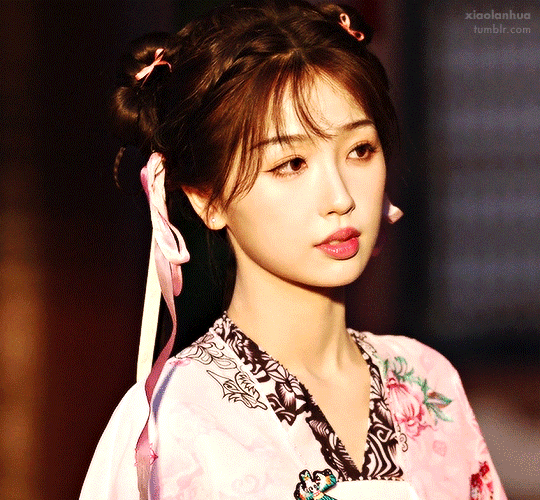
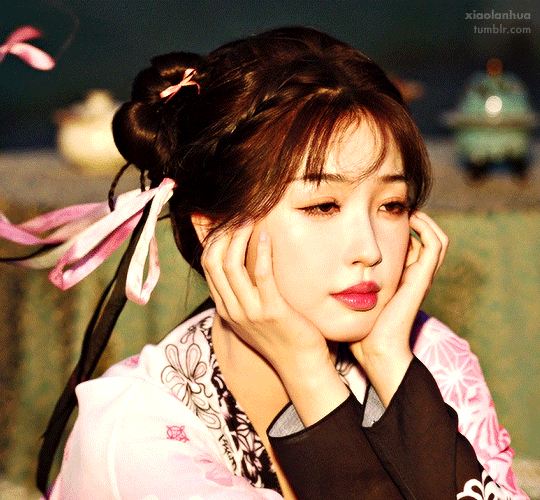
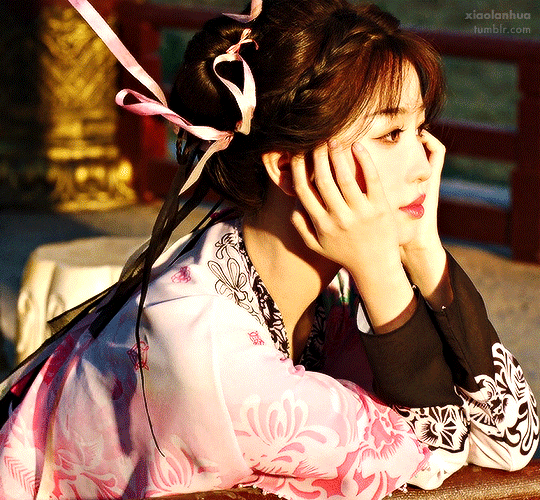
Esther Yu as Ling Miao Miao Love Game in Eastern Fantasy 永夜星河 (2024) – Ep. 14
#love game in eastern fantasy#the guide to capturing a black lotus#yu shuxin#esther yu#cdrama#cdramaedit#userdramas#asiandramanet#asiandramasource#cdramasource#dramasource#my gifs#*#perioddramaedit#tvgifs#tvedit#periodedit#womendaily#costume design
719 notes
·
View notes
Text
PSA to all historical fiction/fantasy writers:
A SEAMSTRESS, in a historical sense, is someone whose job is sewing. Just sewing. The main skill involved here is going to be putting the needle into an out of the fabric. They’re usually considered unskilled workers, because everyone can sew, right? (Note: yes, just about everyone could sew historically. And I mean everyone.) They’re usually going to be making either clothes that aren’t fitted (like shirts or shifts or petticoats) or things more along the lines of linens (bedsheets, handkerchiefs, napkins, ect.). Now, a decent number of people would make these things at home, especially in more rural areas, since they don’t take a ton of practice, but they’re also often available ready-made so it’s not an uncommon job. Nowadays it just means someone whose job is to sew things in general, but this was not the case historically. Calling a dressmaker a seamstress would be like asking a portrait painter to paint your house
A DRESSMAKER (or mantua maker before the early 1800s) makes clothing though the skill of draping (which is when you don’t use as many patterns and more drape the fabric over the person’s body to fit it and pin from there (although they did start using more patterns in the early 19th century). They’re usually going to work exclusively for women, since menswear is rarely made through this method (could be different in a fantasy world though). Sometimes you also see them called “gown makers”, especially if they were men (like tailors advertising that that could do both. Mantua-maker was a very feminized term, like seamstress. You wouldn’t really call a man that historically). This is a pretty new trade; it only really sprung up in the later 1600s, when the mantua dress came into fashion (hence the name).
TAILORS make clothing by using the method of patterning: they take measurements and use those measurements to draw out a 2D pattern that is then sewed up into the 3D item of clothing (unlike the dressmakers, who drape the item as a 3D piece of clothing originally). They usually did menswear, but also plenty of pieces of womenswear, especially things made similarly to menswear: riding habits, overcoats, the like. Before the dressmaking trade split off (for very interesting reason I suggest looking into. Basically new fashion required new methods that tailors thought were beneath them), tailors made everyone’s clothes. And also it was not uncommon for them to alter clothes (dressmakers did this too). Staymakers are a sort of subsect of tailors that made corsets or stays (which are made with tailoring methods but most of the time in urban areas a staymaker could find enough work so just do stays, although most tailors could and would make them).
Tailors and dressmakers are both skilled workers. Those aren’t skills that most people could do at home. Fitted things like dresses and jackets and things would probably be made professionally and for the wearer even by the working class (with some exceptions of course). Making all clothes at home didn’t really become a thing until the mid Victorian era.
And then of course there are other trades that involve the skill of sewing, such as millinery (not just hats, historically they did all kinds of women’s accessories), trimming for hatmaking (putting on the hat and and binding and things), glovemaking (self explanatory) and such.
TLDR: seamstress, dressmaker, and tailor are three very different jobs with different skills and levels of prestige. Don’t use them interchangeably and for the love of all that is holy please don’t call someone a seamstress when they’re a dressmaker
#sewing#historical sewing#sewing knowledge#writing guide#PSA to writers#historical fiction#fantasy writing
20K notes
·
View notes
Text
I'm sorry I'll never be over how funny the chocobros are. There's two different guys who essentially grew up alongside the MC, putting his life before their own and in parts helping raise him for the grand destiny that is about to befall all of them.
And then one totally normal dude you met in highschool who got one month of gun training.
#what if i was a lamb raised for slaughter and you softly pet my wool as you guided me from the field#and also brad from ap geo was there#final fantasy xv#final fantasy 15#ffxv#ff15#ff xv#ff 15#noctis lucis caelum#ignis scientia#gladiolus amicitia#prompto argentum
1K notes
·
View notes
Text







The first time I found you a bit cute (❀❛ ֊ ❛„)♡
#永夜星河#love game in eastern fantasy#the guide to capturing a black lotus#cdramasource#dramasource#asiandramasource#dailyasiandramas#chineseartistsinc#cdramanet#cdramagifs#cdramaedit#cdrama#chinese drama#*4#ep26#ling miaomiao#yu shuxin#ding yuxi#mu sheng#he fully admitted to finding her cute back then!!!!!!! ahhhhhhhhhh
662 notes
·
View notes
Text




@小野永动机故障中
#love game in eastern fantasy#fan art#fanart#yong ye xing he#永夜星河#the guide to capturing a black lotus#eternal night of star river#eternal night galaxy#cdrama#cdrama 2024#yyxh fan art#yu shu xin#ling miao miao#ding yuxi#mu sheng#zhu xudan#mu yao#yang shize#liu fuyi
950 notes
·
View notes
Text
Ding Yuxi and his micro expressions
Lately, Ding Yuxi has trended in weibo for his phenomenal acting in Love Game in Eastern Fantasy and people have started calling it "jinjiang style acting" for being able to portray the fancy and wordy description or narration jinjiang (JJWXC) novel authors use. For context, jjwxc is a chinese website for publishing novels.
Someone in weibo has created a compilation of his micro expressions and let me tell you, if you appreciate good acting, watch this.
Link to the original post here.
NOTE: All subtitles were MTL'd! I only added subtitles so that when I rewatch it I don't have to rely on my notes for the translations. It's all really for ease of watching. I apologize if there are mistranslations within the video.
FUN FACT: xiaoding's expression in yyxh was used as a lecture material in a film school in China! This also got trending in weibo.



#ding yuxi#ryan ding#love game in eastern fantasy#cdrama ramblings#cdrama#cdramedit#cdramsource#idk if it isn't obvious yet but I'm a xiaoding fan through and though#yong ye xing he#guide the capturing the black lotus
1K notes
·
View notes
Text
#polls#poll#daily polls#i love polls#polladay#fictional universes#portal fantasy#harry potter#star wars#star trek#dune#discworld#battletech#narnia#the hitchhiker's guide to the galaxy
15K notes
·
View notes
Text





Love Game in Eastern Fantasy 1.08 (2024)
#Love Game in Eastern Fantasy#永夜星河#The Guide to Capturing a Black Lotus#cdrama#cdramaedit#cdramagifs#cdramanet#cdramanetwork#chinese drama#ship inspo#esther yu#ding yuxi#tvedits#gifs#m!
2K notes
·
View notes
Text





This is the male lead of the novel guys, THE MALE LEAD
When your $200 makeup and $1000 outfit go unappreciated and you get Chinese New Year compliments instead
— Love Game in Eastern Fantasy 永夜星河 (2024) | EP. 04
#永夜星河#love game in eastern fantasy#lgief#lgef#cdrama#cdramaedit#esther yu#yu shuxin#lin yu#ling miaomiao#mu yao#mu sheng#liu fuyi#zhu xudan#ding yuxi#HE HAS OBVIOUSLY NEVER BEEN AROUND GIRLS#HILARIOUS#yang shize#even mu sheng who doesn't like him also is like#REALLY THAT#IS ALL YOU GOT?!?!?#cdramasource#the guide to capturing a black lotus#asiandrama
2K notes
·
View notes
Text











DING YUXI 丁禹兮 as Mu Sheng "Ziqi" LOVE GAME IN EASTERN FANTASY 永夜星河 (2024) dir. Zhao Yi Long — @kdramaspace 2024 Year in Review: Year End Gala & Masterclass in Acting .
#love game in eastern fantasy#ding yuxi#the guide to capturing a black lotus#cdramaedit#userdramas#asiandramanet#kds2024#cdramasource#wuxiasource#costumeedit#rosiegifs#m:lgief#cdrama#it's finally done omg
1K notes
·
View notes
Text
Fantasy Guide to Early 20th Century Trains

Trains were a popular means of transportation during the early 20th century. The previous decades saw to the explosion of more trains, more services and more tracks linking country communities which were isolated from cities and larger towns. So what do we need to know about trains in the early 20th century?
Typical layout

A basic layout of a train is as follows: passenger compartments, dining cars, luggage and guard vans.
Compartments: Compartments are where the passengers sat. They were divided between three classes – first, second, third. First class compartments were the most expensive. The seats were upholstered, and the floors were often carpeted. They were much larger than the other class compartments. They would be fitted with gas light like the rest of the train, the windows would have curtains, and the walls would often be panelled with wood. Second class compartments were less luxurious but pretty much the same as the first class only smaller and less grand. Third class would feature wooden benches or seats fitted with cushions or fabric, they were smaller and often more crowded. Compartments could be offered as corridor compartments which offered more movement between compartments and cars. Compartments would offer seating areas and areas to store hand luggage. Some trains travelling overnight would offer sleeper cars which offered beds and an area to wash.
Dining Cars: Dining cars were offered on some trains. There would be tables for the passengers to eat and get something to drink. Dining cars were usually offered only to certain classes or segregated by class.
Luggage Cars: Where large luggage would be stored.
Guard Vans: Where railway security staff could get warm. It also held a stove and hand-operated brakes which the designated guard would use to slow the train if needed.
Separation


Trains in this era were divided by class and in some case race. Unlike the American states and South Africa where there were laws preventing certain races from mixing with others or from using any class other than third class, Europe was a little more forgiving in the case of race. However, this is not to say there was no segregation. This was Europe at the height of the age of Empire. People who hailed from the ‘colonies’ were discriminated through subtler means than simple prevention, they would be discouraged from attempting to use the upper class tickets and sometimes they were even treated not as well as other passengers. Class was the main division on the train. First class of course had more ability to move, more access to amenities. They often had separate dining cars where they could sit down to full meals. Larger trains might even offer some other common areas such as smoking compartments. Second class were sometimes permitted to dine in the dining cars but may not have been allowed access to full meals. Third class was not permitted access to the dining cars, often having to bring along meals or buy food at the station before departure. The classes were not allowed to mingle. In cases of a first-class person travelling with a servant, they had the choice to either purchase a first-class ticket for their servant or leave them in third class.
Train and Station Staff


Trains did not run by themselves. The passengers and the train had many needs and there had to be an army of staff available to keep things chugging along *hehe*. That being said, the train staff weren’t the only people who kept things going smoothly, the station staff at each stop would also help out the staff and the passengers.
On the Train:
Drivers: These were the people who drove the train.
Firemen: These were the people who shovelled coal and kept an eye on the steam pressure.
Guards: The guards were there to keep the passengers safe. They sometimes checked tickets and would patrol the luggage cars, mainly to keep an out for anybody sneaking onto the trains without a ticket.
Conductors: Conductors would go from car to car to check tickets, collected any outstanding fares and kept an eye on things in the compartments.
Engineers: Would travel on the train to help out with repairs on the train.
Dining car staff: Such as maids to serve tea and coffee, waiters to serve food and if the train is large enough, kitchen staff and bartenders.
The Station:
Station Masters: Was the person in charge of the station, overseeing the flow of trains and passengers through the station.
Porters: Handled the luggage.
Signalmen: Oversaw the signals to keep the trains on track *hehe*.
Parts of the train

The train is a beast of many parts. A train in this era is a steam train, which links of cars connected together behind a steam engine.
Buffers & Buffing Gear: These are the parts of the train built in to absorb impact.
Cars: The segments of the train.
Couplers: This is what connects the train cars together.
Cowcatcher/Pilot: This is the frame that sits at the very front of the train used to clear things off the track.
Carriages: These are the cars that the passenger compartments are.
Headlamp: This is the light at the front used to improve visibility.
Freight Cars: Used for transporting goods.
Locomotive: This is the train’s engine. It is the driving force of the train, where the driver and the firemen would work.
Truck: The framework that connects the axles to the wheels.
Smokebox: Where the exhaust system of the stream engine is housed.
#fantasy guide to early 20th century trains#edwardian era#belle epoque#trains#writing stuff#writing inspiration#writing problems#writing tips#writing community#writing advice#writeblr#creative writing#writing prompt#writers on tumblr#writers#on writing#writing reference#writing resource#for reference#writing refs#fantasy guide#wtwcommunity#writing help
1K notes
·
View notes
Text

Ding Yu Xi as Mu Sheng Love Game in Eastern Fantasy 永夜星河 · 2024
#love game in eastern fantasy#the guide to capturing a black lotus#cdrama#cdramaedit#cdramasource#永夜星河#ding yuxi#chinese drama#dailyasiandramas#ding yu xi#lovegameineasternfantasyedit#lgiefedit#lgief: 1.06#.gif#look at he#yong ye xing he
1K notes
·
View notes
Text
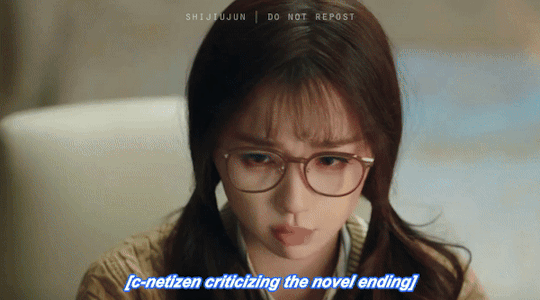


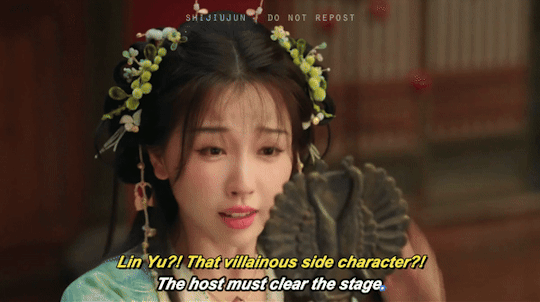

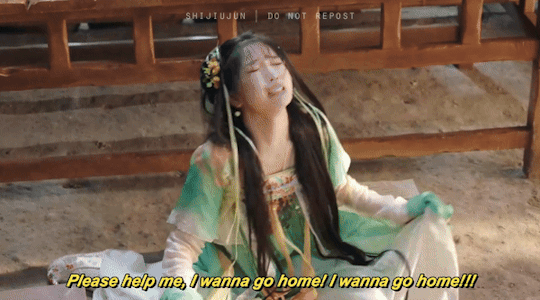
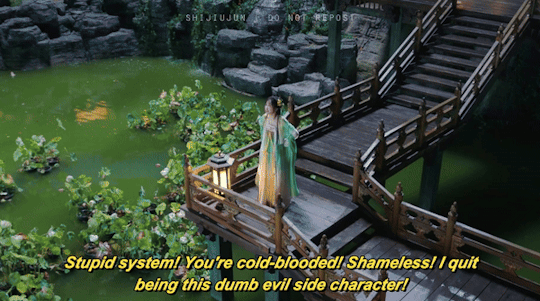
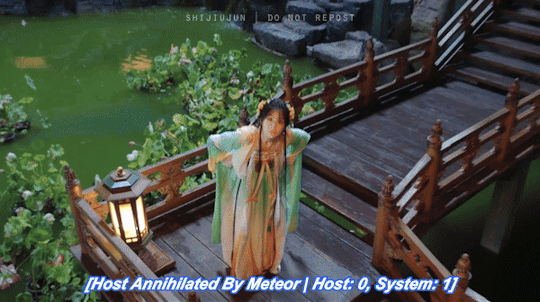
The Transmigration Starter Pack
Confusion + Disbelief > Shock + Reluctance > Helplessness > Anger
— Love Game in Eastern Fantasy 永夜星河 (2024) | EPS. 01-03
#永夜星河#love game in eastern fantasy#lgief#lgef#cdrama#cdramaedit#esther yu#yu shuxin#lin yu#ling miaomiao#transmigration#I AM LAUGHING SO DAMN HARD#cdramasource#the guide to capturing a black lotus#asiandrama
2K notes
·
View notes





